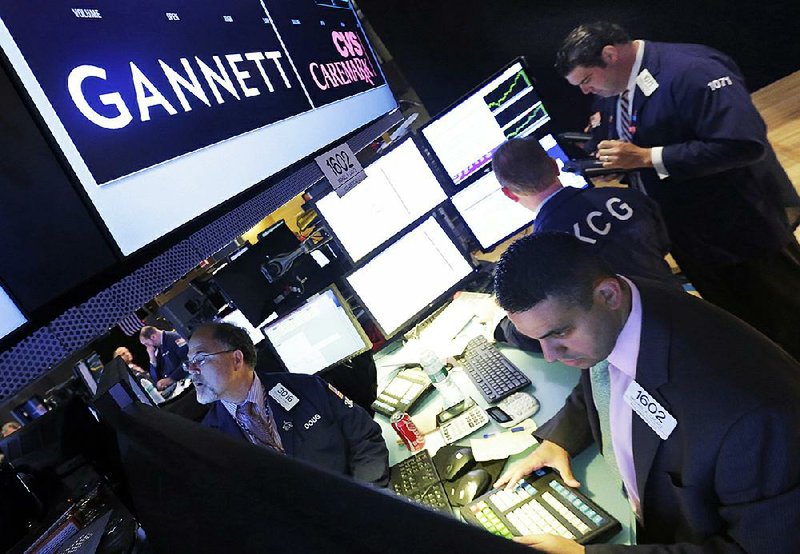Gannett's board of directors said Monday that it had rejected a $1.36 billion buyout bid from Digital First Media, questioning the would-be buyer's motives and accusing it of trying to conceal the company's "inability to finance and complete" the deal.
"After careful review and consideration, conducted in consultation with its financial and legal advisers, the Gannett board concluded that MNG's unsolicited proposal undervalues Gannett and is not in the best interests of Gannett and its shareholders," the company said in a news release. "In addition, Gannett does not believe MNG's proposal is credible."
Digital First, which brands itself as MNG Enterprises, quickly fired back, saying it had hired a Wall Street investment bank, Moelis & Co., to help finance the deal and was considering nominating new Gannett board members later this week.
"MNG will consider its options in the coming days, including nominating a slate of individuals to the Gannett board who agree that Gannett shareholders should decide for themselves whether to accept our premium cash offer or other alternatives for immediate and certain value," Digital First said in a statement.
Digital First owns approximately 200 publications, including the Denver Post and San Jose Mercury News.
It has a reputation for particularly stringent, painful cost-cutting and job-slashing.
Backed by hedge fund Alden Global Capital, the company told Gannett last month that Gannett's executives had made a series of "value-destroying" decisions. Digital First urged the board to sell the company, including USA Today and more than 100 outlets, for $12 per share, about 41 percent more than what the stock was trading for at the time.
Gannett's board contends it was prepared to discuss the buyout proposal until Digital First insisted on Gannett officials signing nondisclosure agreements and refused to explain in writing how it would finance the purchase or address potential antitrust concerns by regulators.
"In light of this, Gannett now questions MNG's motives and can only conclude that the proposed [nondisclosure agreement] is a distraction designed to mask MNG's inability to finance and complete the proposed transaction," Gannett's board wrote.
At the heart of the takeover bid are competing views of how best to monetize the newspaper industry going forward as it struggles with declining circulation and other changes in the industry. Despite making a series of layoffs -- including some last week -- Gannett has moved to build on its newspaper brands by increasing digital readership.
"We believe that our future -- and that of the industry -- turns on thoughtful investments in journalism and marketing solutions, so we can deliver engagement when, where and how our audiences and customers demand it," said J. Jeffry Louis, Gannett board chairman, in the company's statement.
But Digital First is Gannett's largest active shareholder, with a 7.5 percent stake. Its executives argue that Gannett's digital investments have not paid off and that the company should cease making any new digital investments and not fill key leadership posts, including the chief executive job, until it pursues a new strategy.
A big question is whether Digital First could get significant votes from other shareholders, said Rick Edmonds, media business analyst at the Poynter Institute. And there may be other twists and turns to come. There is industry speculation that Gannett, which also owns the Arizona Republic, Detroit Free Press and Indianapolis Star, may try to combine with another newspaper publisher or turn around and try to buy parts of Digital First.
Digital First's cost-cutting moves have prompted outcries from critics who say the company lays off journalists without regard for newspapers' roles in their communities.
Meanwhile, digital-only news outlets, including Buzzfeed and Vice, have made their own cuts recently.
Digital First on Monday criticized Gannett's "pie in the sky" turnaround plans, saying the company "cannot be counted on to deliver value superior to the immediate and substantial premium being offered by MNG."
The deadline for shareholders to nominate new Gannett board members is Thursday.
Information for this article was contributed by Jonathan O'Connell of The Washington Post and by Tali Arbel of The Associated Press.
Business on 02/05/2019
